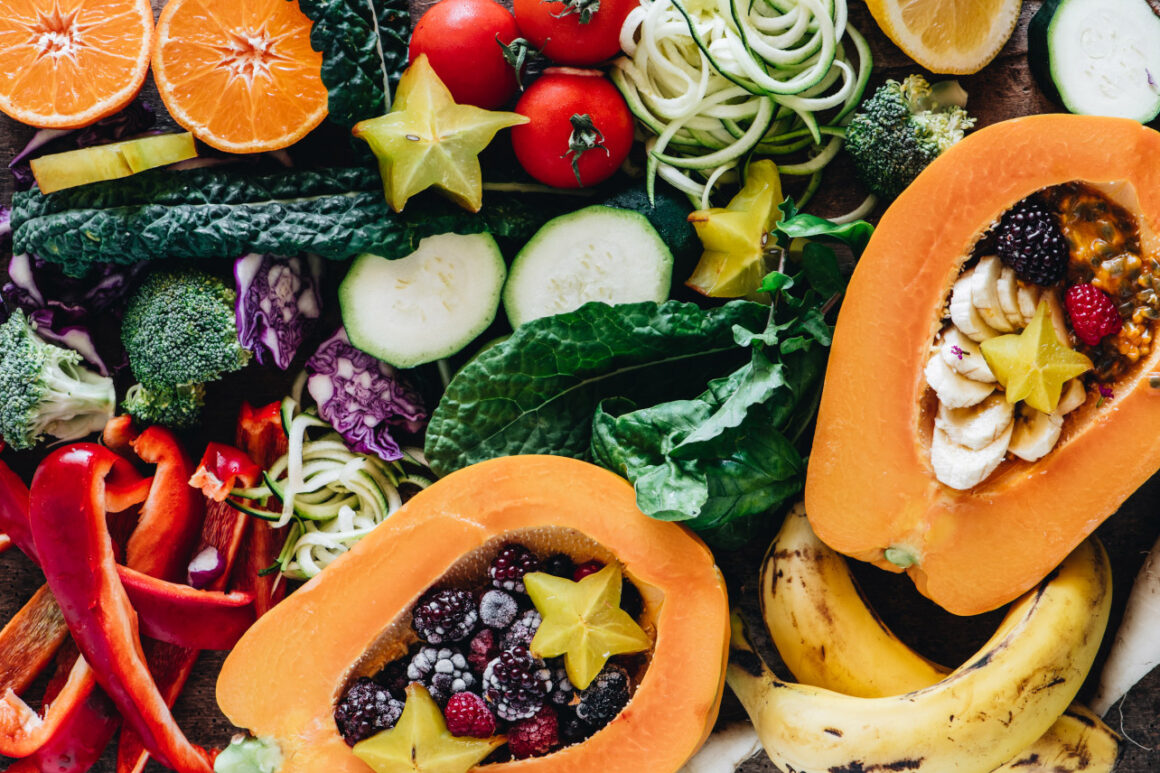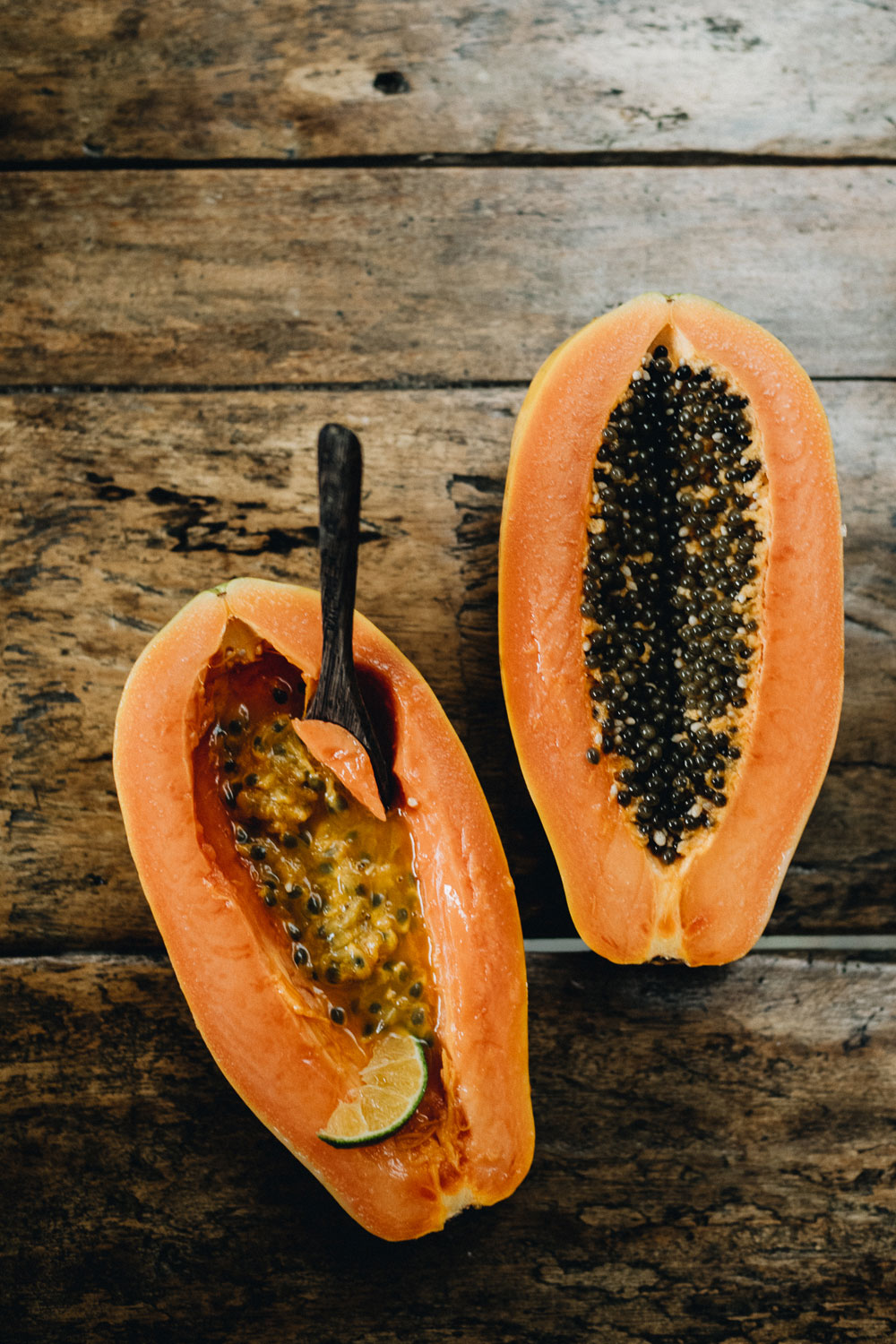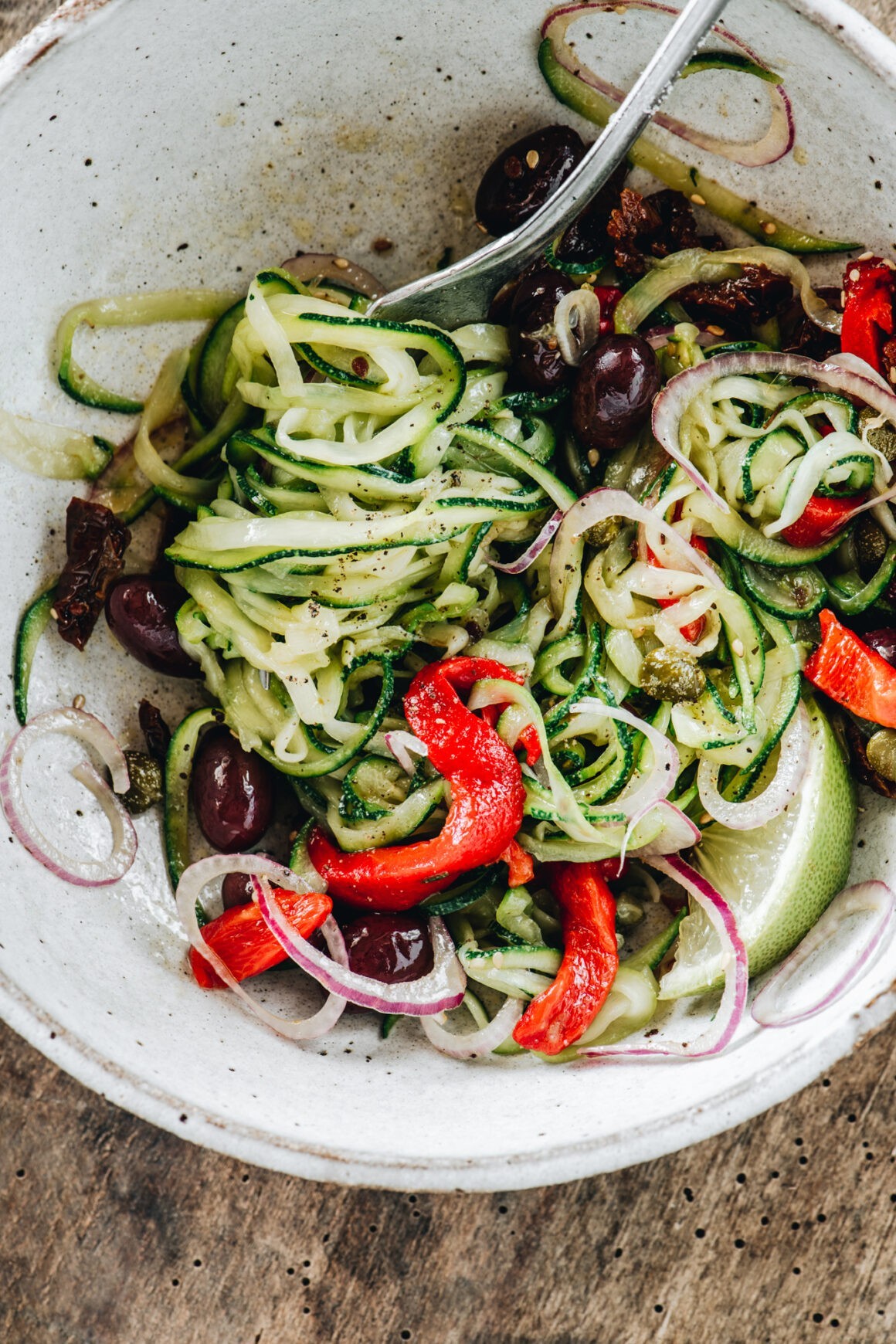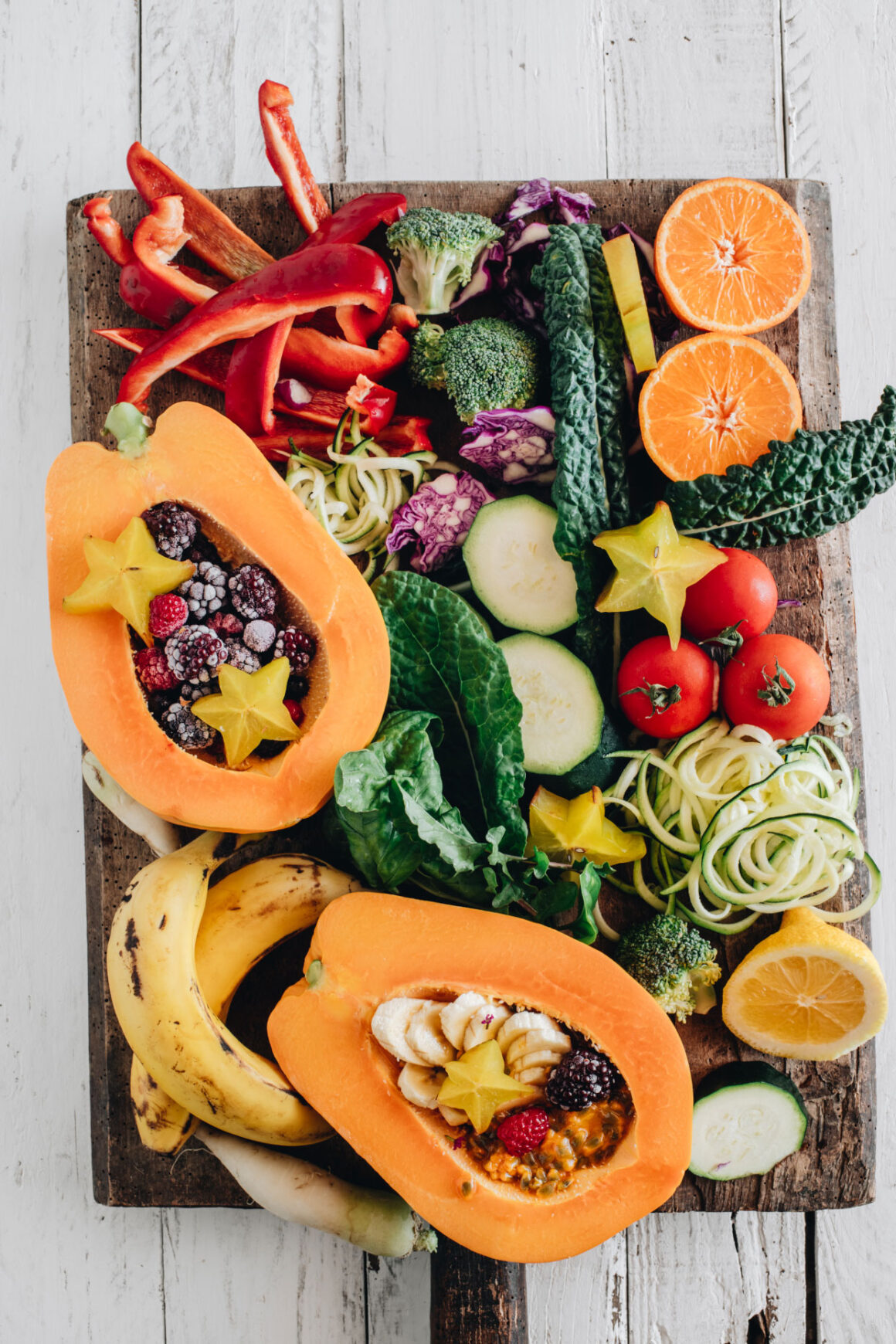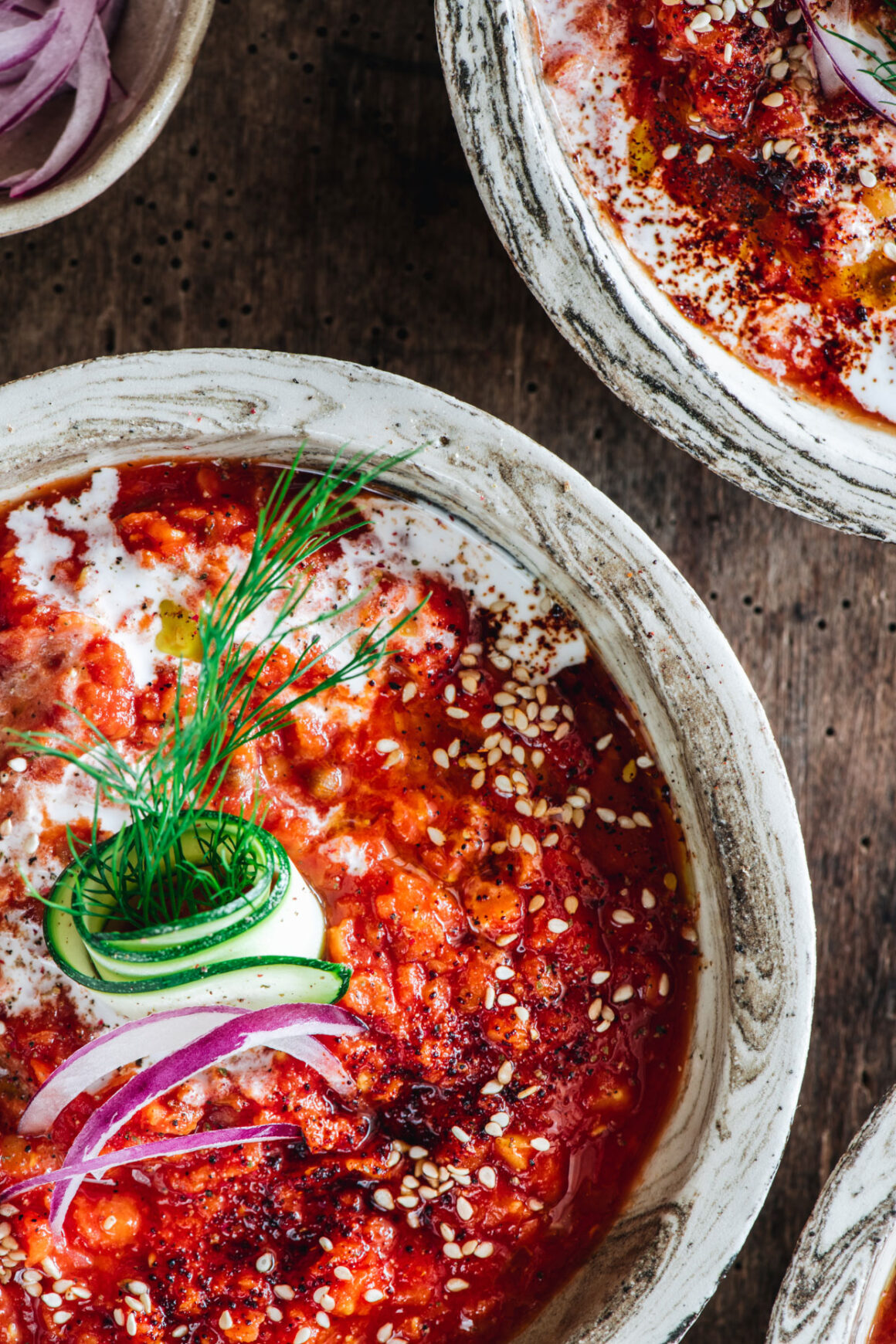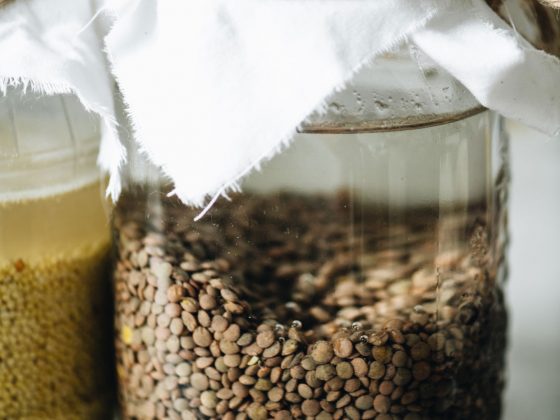To produce this article, we’ve collaborated with nutritionist Morgyn Clair, MS, RDN. Hope it’ll be of great help to you in these crazy times!
Want to know more about nutrition & wellbeing? Check out the Greeny App. We have tons of tips, recipes & useful tools for healthy living & longevity.
One of the easiest ways to keep your immune system healthy is through good nutrition. The simplest ways to prevent colds, the flu and other common illnesses, are actually right there in your local grocery store! Nutrients that support healthy immunity include Vitamins C, D, A, antioxidants, zinc and omega-3 fatty acids.
Planning meals to include a few key immune-boosting ingredients can help to strengthen the body’s natural defense system. Interestingly, the most immune-boosting foods are plant based.
Vitamin C
Vitamin C is well-known as a powerful antioxidant and immunity booster. Research has shown that it may help to fight off infection and shorten its stay in the body. Vitamin C supports the body’s natural production of white blood cells, and white blood cells are a key component of a healthy immune system.
Vitamin C is found in a wide variety of foods, most notably citrus fruits and green veggies. Other foods high in Vitamin C include:
- Kiwi: 1 cup = 185% daily value (DV) per serving
- Bell peppers: 1 cup = 152% DV per serving
- Broccoli: 1 cup = 90% DV per serving
Vitamin D
Vitamin D is essential for keeping the immune system in top shape. This vitamin helps to regulate immune functions and promotes the body’s natural defense systems. Vitamin D acts as a signaling mechanism, instructing the immune system to defend against invaders such as the common cold or flu. This fat soluble vitamin can be found in green leafy vegetables, dairy, and mushrooms.
Vitamin A
Vitamin A is a powerhouse for infection protection. This vitamin belongs to a group of nutrients known as antioxidants. Antioxidants protect cells and prevent damage caused by invasive pathogens.
Vitamin A is available to humans in two ways:
1. Preformed Vitamin A
2. Carotenoids
Preformed Vitamin A is found in animal food sources like liver, meat, fish and dairy. This type of Vitamin A needs to be metabolized into an active form by the body.
Carotenoids (such as beta-carotene) are found in plant foods. Like preformed Vitamin A, these compounds have to be converted into a usable form by the body, and the product of this process is simply called Vitamin A. In rare cases, certain people cannot convert carotenoids to Vitamin A. In such situations, Vitamin A found in animal food sources or supplements should be consumed to support good nutrition.
Bonus benefit: Vitamin A supports healthy skin and eyes!
Best Plant Sources of Vitamin A
1. Sweet Potato (cooked):
1 cup = 1,836 mcg (204% DV)
100 grams = 1,043 mcg (116% DV)
2. Winter Squash (cooked):
1 cup = 1,144 mcg (127% DV)
100 grams = 558 mcg (62% DV)
3. Kale (cooked):
1 cup = 885 mcg (98% DV)
100 grams = 681 mcg (76% DV)
4. Collards (cooked):
1 cup = 722 mcg (80% DV)
100 grams = 380 mcg (42% DV)
5. Turnip Greens (cooked):
1 cup = 549 mcg (61% DV)
100 grams = 381 mcg (42% DV)
6. Carrot (cooked):
44% DV per serving (1 cup)
Zinc
Zinc supports a variety of functions throughout the body, including wound healing, metabolism and immune support. Zinc also helps to metabolize other nutrients that are vital to immune function. This important nutrient also promotes the healing of damaged tissues and cells. A diet rich in fruits and vegetables usually provides enough zinc to support a healthy immune system, making supplements unnecessary.
Top food choices for zinc include:
- Tofu: 1 cup = 36% DV per serving
- Cashews: 2 oz = 30% DV per serving
- Lentils: 1 cup = 23% DV per serving
Omega-3 Fatty Acids
Inflammation is a natural response of the body when it senses an attack from a virus or infection. Omega-3 fatty acids can help to prevent unnecessary inflammation and promote proper immune cell function.
There are three (3) main types of omega-3 fatty acids: ALA, DHA, and EPA. Top plant-based options high in omega-3 fatty acids are:
- Nuts and seeds, which are rich in ALA;
- Seaweed and sea vegetables/algae, which provide DHA and EPA fatty acids.
To support a healthy immune system, you can also obtain plenty of omega-3 fatty acids from eating fish (if not vegan or vegetarian).
Top Foods to Boost Immunity
Eating just one particular food won’t prevent infection and illness, even if that one food is nutritious and you eat it regularly. Many common foods contain multiple nutrients that are key to boosting immunity; however, consuming a variety of foods is the key to a well- functioning immune system, and a healthy-eating lifestyle overall. Each of the following foods provides a good source of nutrients to keep your immune system in top shape:
Bell Peppers
This colorful produce is especially rich in Vitamins C, A, and E, as well as other antioxidants. They’re easy to eat on-the-go, raw or cooked.
Garlic
Garlic has a long history as an immune booster in traditional medicine. Whole garlic contains a compound called allin. When crushed or chopped, “allin” is converted to “allicin”.
Allicin gives garlic its distinct flavor and smell, and it’s what makes garlic an especially good immune booster. Allicin is also thought to improve white blood cell function, aiding in the body’s ability to fight off infection.
Curcumin and Turmeric
These spices contain a distinct, bright yellow pigment, and this offers a host of antioxidants and signaling molecules. Immunity is enhanced when curcumin and turmeric deactivate inflammatory cytokines; in turn, this prevents the onset of a cold or illness. Through similar mechanisms, these compounds have been further shown to have a positive effect on the health of the digestive tract overall.
Mushrooms & Sunshine
This powerhouse duo delivers a healthy dose of Vitamin D. Vitamin D is essential for the immune system’s balance and signaling. White blood cells are the first defense against illness, and their activation depends on Vitamin D.
Having low Vitamin D means the immune system’s balance is off. This can potentially lead to increased infections or worsened symptoms. A minimum of 10 minutes of sunshine per day and an occasional cup of mushrooms would provide plenty of Vitamin D for a healthy immune system.
Lemons & other citrus
Citrus fruits – especially lemons and oranges – are packed with Vitamin C. Vitamin C is a go-to nutrient when it comes to boosting the immune system. As mentioned above, in addition to being a natural immune booster, Vitamin C is a powerful antioxidant. Easy ways to add in citrus to your daily intake include having hot tea and lemon, clementines, and/or grapefruit with brown sugar.
Nuts & Seeds
Nuts and seeds are especially high in zinc. While true zinc deficiency is rare in developed countries, zinc is a vital nutrient we must consume from foods on a daily basis.
Dark, leafy greens & bright orange foods
Beta carotene is an immune-enhancer that is found in intensely colored produce like dark, leafy greens and bright red and orange foods. Intake of beta carotene has been shown to increase the quality of immune cells and their numbers, so choose spinach, bell peppers, carrots, and broccoli for a healthy dose.
Bonus benefit: These foods are also high in Vitamins C, E, and A.
Ginger, green tea, pineapple
These foods contain the anti-inflammatory enzyme bromelain. Bromelain supports immune function by helping to stimulate and release inflammation-fighting compounds.
Rosemary
This herb contains carnosol and powerful antioxidants, both of which have been shown to improve immune function and shorten the duration of the common cold and flu. Rosemary can be added as seasoning or garnish to a variety of foods, but did you know that this herb is also powerful in its oil and leaf form? Rosemary can be used dry or straight off the plant. Rosemary oil can be added to drinks or used as a supplement on its own.
Propolis
When building their hives, bees combine compounds they produce with the sap from evergreen trees; this creates a sticky, brown coating called propolis. Propolis activates and strengthens the immune system of human beings, making immune response more effective. Propolis supplements come in liquid form as an extract, and in capsules as well.
Apples, onions, berries, and the entire cabbage family
All of these are excellent choices for immune support because they are high in quercetin. Quercetin is an antioxidant and flavonoid. It’s compounds also reduce the release of histamine, providing an anti-allergenic effect. Because histamine is suppressed by quercetin, when quercetin-rich foods are consumed, a person may not experience the symptoms of a cold or virus as intensely.
Blueberries & Green Tea
Blueberries and green tea are highly concentrated sources of a wide range of antioxidants. Antioxidants prevent cellular damage and promote healthy white blood cell formation. Blueberries also offer plenty of other immune supporters, including Vitamins A and C, potassium, dietary fiber and manganese.
Want to know more about nutrition & wellbeing? Check out the Greeny App. We have tons of tips, recipes & useful tools for healthy living & longevity.
